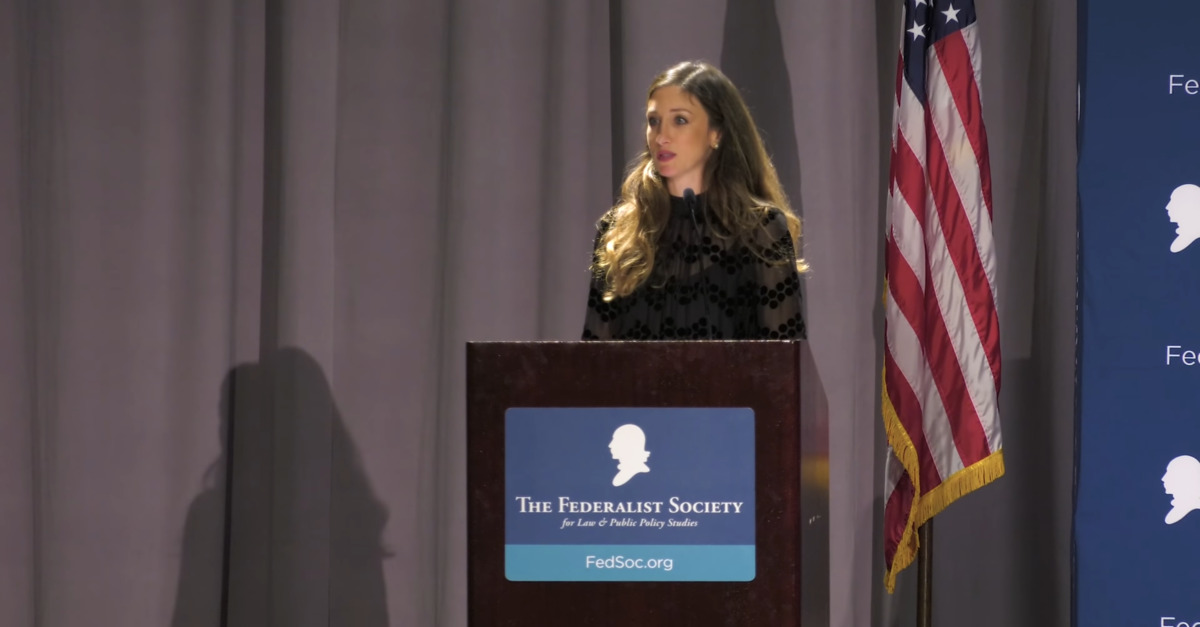
A federal judge in Florida late Monday threw out the national mask mandate for airplanes, trains and public transportation.
In a 59-page opinion and order, Judge Kathryn Kimball Mizelle of the U.S. District Court for the Middle District of Florida declared the transportation mandate, previously issued by the Centers for Disease Control and Prevention, as “unlawful” for exceeding statutory authority as well for violating the Administrative Procedure Act.
The CDC issued the mandate on Feb. 2. 2021 and extended it several times in response to requests from President Joe Biden as the COVID-19 pandemic continued apace. The mandate was set to expire on the same day it was struck down but was recently extended until early May in order for the administration’s public health officials to study the impact of the BA.2 variant of the coronavirus.
The mask mandate was legally premised on a portion of the Public Health Services Act of 1944 that empowers the director of the CDC to promulgate regulations aimed at “identifying, isolating and destroying” communicable diseases.
The CDC, according to the statute, has the following methods at its disposal when attempting to combat and control such diseases:
For purposes of carrying out and enforcing such regulations, the Surgeon General may provide for such inspection, fumigation, disinfection, sanitation, pest extermination, destruction of animals or articles found to be so infected or contaminated as to be sources of dangerous infection to human beings, and other measures, as in his judgment may be necessary.
The 35-year-old Donald Trump appointee, previously rated “Not Qualified” by the American Bar Association, found that the PHSA does not allow for enforcement of the mask mandate because, after subjecting the the term to a textual analysis, masks are not instruments of sanitation.
“Put simply, sanitation as used in the PHSA could have referred to active measures to cleanse something or to preserve the cleanliness of something,” the opinion says–emphasis in original. “While the latter definition would appear to cover the Mask Mandate, the former definition would preclude it.”
Mizelle uses non-textual tools, which she identifies as “the statute’s context, including the surrounding words, the statute’s structure and history, and common usage at the time,” to move her textual analysis forward. In the process, she determines that “active cleaning” is what the federal law actually refers to when it references “sanitation.”
“Wearing a mask cleans nothing,” the judge says. “At most, it traps virus droplets. But it neither ‘sanitizes’ the person wearing the mask nor ‘sanitizes’ the conveyance. Because the CDC required mask wearing as a measure to keep something clean–explaining that it limits the spread of COVID-19 through prevention, but never contending that it actively destroys or removes–the Mask Mandate falls outside of [the PHSA].”
Mizelle goes on to conclude that sanitation is about what the CDC can do to objects while the agency’s authority over persons “is more closely related to a power discussed” in a section about “conditional release.” This power, the judge notes, is closely related to the agency’s authority to subject individuals “to detention and quarantine.”
“The Mandate requires a traveler to do something to have the privilege of passing a checkpoint and continuing on his journey,” she writes. “In other words, a person may travel ‘[s]ubject to or dependent on a condition–namely, that he wear a mask.”
“As a result, the Mask Mandate is best understood not as sanitation, but as an exercise of the CDC’s power to conditionally release individuals to travel despite concerns that they may spread a communicable disease (and to detain or partially quarantine those who refuse),” Mizelle says. “But the power to conditionally release and detain is ordinarily limited to individuals entering the United States from a foreign country.”
But here’s the rub in the opinion: the power to subject an individual to isolation, quarantine, or conditional release is in a different subsection than the one cited by the CDC in their mandate order. And, in any event, the judge says, the mandate is too broad because it extends to all people instead of just those “reasonably believed to be infected.”
Mizelle, a former clerk for Justice Clarence Thomas, also says the Biden administration violated the APA by improperly invoking the so-called “good cause” exception by instituting the mandate without the typical 30-day notice-and-comment period.
The CDC, the opinion notes, relied on a single, conclusory sentence about the need to make haste due to the “public health emergency caused by COVID-19” in order to dispense with that public input period. And, such a statement, Mizelle writes, “without more, is insufficient to establish good cause.”
Finally, the opinion determines that the rule also violated the APA by being arbitrary and capricious–a term of art in administrative law that relies on a complicated and often-changing Supreme Court test. In sum, the court found that, similar to the good cause determination, the CDC did not use enough “particularity” for a reviewing court to determine that the CDC did not abuse its discretion in issuing the mandate.
“Beyond the primary decision to impose a mask requirement, the Mask Mandate provides little or no explanation for the CDC’s choice,” Mizelle reasons. “Specifically, the CDC omits explanation for rejecting alternatives and for its system of exceptions. And there are many, such that the overall efficiency of masking on airplanes or other conveyances could reasonably be questioned.”
In response to the ruling, White House press secretary Jen Psaki said the decision was “obviously a disappointing” one.
Later on Monday, the Transportation Security Administration said the mandate would no longer be enforced, multiple media outlets reported.
“Today’s court decision means CDC’s public transportation masking order is not in effect at this time,” a TSA official said. “Therefore, TSA will not enforce its Security Directives and Emergency Amendment requiring mask use on public transportation and transportation hubs at this time.”
[image via Federalist Society/screengrab]